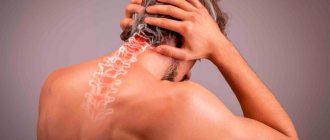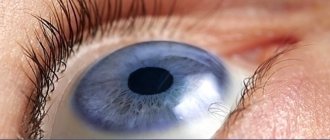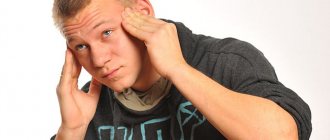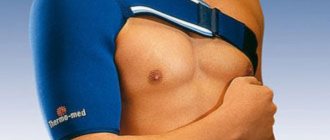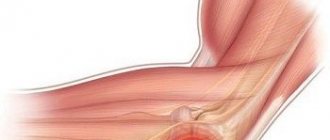Neurological diseases at the initial stage may pass without pronounced symptoms, but in an advanced stage they can cause irreparable consequences.
Severe pain in the shoulder joint may indicate a pinched brachial nerve, so you should definitely visit a doctor. If you neglect the problem or delay a visit to a neurologist, it can develop into vertebrobasilar insufficiency.
Therefore, at the first pain in the shoulder area, contact the specialists of the Kuntsevo Center. Our diagnostic base allows us to quickly conduct an MRI of the shoulder, ultrasound or electroneuromyography, based on the results of which the doctor will select the optimal treatment for the disease.
In addition, by contacting a rehabilitation center, you will save your precious time: here you can undergo diagnostic procedures, get advice from doctors, and also receive qualified recommendations for recovery.
Dozens of patients have already been able to verify the individual and effective approach of the treating staff to solving the problem of shoulder pain.
Pain by severity
A person can feel pain of varying intensity:
- Aching (also called somatic) - they appear rarely, it is difficult to establish the exact localization, and can last for days. Most often it occurs in bones and joints, causing a person a lot of inconvenience and discomfort.
- Acute - occurs unexpectedly and with high intensity, and can pass just as quickly. It is the first sign that brachial neuralgia is developing.
- Chronic – constant inflammation of tendons and joints causes the formation of chronic pain.
Pain by mechanism of occurrence
Evidence of problems with the cervical vertebrae is pain that is felt from the shoulder to the fingertips. In some patients, the arm may go numb for some time.
When you raise your arm and at the same time feel discomfort, you can talk about a problem with the supraspinal tendons.
There is another type of pain in the shoulder - when doing loads or physical exercises, the biceps hurts. This indicates a problem in the forearm.
Causes
Neuralgia of the shoulder joint most often develops due to excessive physical stress on the hands and hypothermia of the joint.
There are often situations when a left-handed person lifts a heavy load with his right hand, which can cause a pinched nerve in the left hand (on the main working muscle group).
According to neurologists, the right shoulder joint is most often susceptible to pinching.
It is worth paying attention to the fact that there are factors that influence the acceleration of the development of neurological problems in a person. Among them:
- smoking and alcohol;
- improper and unbalanced diet;
- frequent colds.
Constant stressful situations are another aggravating factor, since they provoke the development of psychosomatic processes in the body.
Causes of inflammation and pinching of the nerve of the shoulder joint
Inflammation of the brachial nerve is a serious illness that develops as a compensatory reaction of the body in response to long-term compression (squeezing). To release the nerve fiber tissue, the body in the area of pressure provokes aseptic inflammation with swelling and increased blood supply to the soft tissues. Due to this, the compression is partially relieved, but inflammation begins with its typical symptoms (pain, redness of the skin, local increase in temperature, loss of sensitivity, etc.).
In order to successfully treat inflammation of the nerve of the shoulder joint, it is necessary to identify and eliminate the cause of its compression. Otherwise, rapid progression of the underlying disease is possible. Thus, with developing arthrosis of the shoulder joint, the use of non-steroidal anti-inflammatory drugs certainly relieves pain. But this happens only at an early stage. Then, to block the unpleasant sensations, patients need to either significantly increase the dose of the drug or switch to intra-articular injections of potent corticosteroid drugs. This further accelerates the process of tissue destruction.
The main causes of brachial nerve entrapment are the following conditions (including pathological ones):
- wearing clothing that puts pressure on the shoulder and armpit;
- walking on crutches for a long time;
- “wedding night” syndrome - when a woman’s head rests on a man’s shoulder for a long time (or vice versa);
- shoulder injury, including sprain of the ligamentous apparatus with subsequent scar changes against the background of habitual dislocation;
- excessive physical stress on the muscles of the shoulder and collar area, which can provoke their spastic contraction and compression of the radial and brachial nerves (usually in this condition, pinching is observed symmetrically on both sides);
- deformation of bone and cartilage tissue due to osteoarthritis of the shoulder joint;
- tenosynovitis, bursitis, and other inflammatory processes of surrounding tissues;
- damage to the acromial joint;
- bruises, fractures, carpal tunnel syndrome.
Sometimes the cause of infringement is incorrect posture, the habit of slouching, and even wearing a handbag on a long strap. Therefore, at the first appointment, the doctor conducts a complete survey of the patient to collect anamnesis. By comparing the information received with the existing clinical signs, the doctor will determine the cause of the development of inflammation and pinching of the brachial nerve. Therefore, this specialist will be able to develop an effective course of treatment.
Which doctor treats
If painful sensations appear in the joint, we recommend immediately contacting a neurologist or rheumatologist. A traumatologist and orthopedist can also consider such patient requests.
Specialists will carry out diagnostic procedures, including:
- MRI,
- radiography,
- CT.
Additionally, patients may be prescribed an ECG and a blood test so that the doctor has a complete picture of the person’s health status and can consult with doctors of other specializations.
IMPORTANT! Shoulder pain can indicate both neurological problems and injuries to the shoulder joint. In any case, the symptom cannot be ignored, because the consequences of neglect can lead to the development of a serious illness.
Therefore, if you have shoulder pain, make an appointment with our specialist - a neurologist, traumatologist or rheumatologist, who will determine the essence of the problem and prescribe the necessary treatment for you. A consultation with a highly qualified doctor at the Kuntsevo Medical and Rehabilitation Center will help you get rid of shoulder pain and return to your previous high quality of life!
Sign up
Treatment of a pinched nerve in the shoulder joint
To treat a pinched brachial nerve, both conservative and surgical methods can be used. In any case, treatment for a pinched nerve in the shoulder joint should begin as soon as possible after the onset of typical clinical symptoms; the longer the compression of the nerve fiber continues, the higher the chances of starting atrophic processes. This will lead to the limb losing the ability to perform certain actions. Both the first three fingers of the hand and the arm as a whole may be paralyzed.
Manual therapy allows the use of techniques in the treatment of the nerve of the shoulder joint that, without pharmacological or surgical effects, trigger regeneration processes and completely eliminate pain. In order to eliminate pain, you need to eliminate pressure. This can be done using traction, osteopathy, massage and manual therapy.
Then, techniques are used to provide complete treatment for the underlying disease of the shoulder joint that causes compression of the nerves. For this purpose, kinesitherapy, therapeutic exercises, osteopathy, reflexology, laser therapy and much more are prescribed.
The course of treatment is developed individually. So if you are experiencing shoulder or forearm pain, schedule a free consultation with our manual therapy clinic. After the examination and diagnosis, you will be given individual recommendations for treatment.
Treatment methods
To treat shoulder neuralgia, patients are prescribed anti-inflammatory and warming ointments (for example, Finalgon). To enhance the positive effects of ointments, it is imperative to take strengthening B vitamins.
It will not be superfluous to carry out general physical therapy. For these purposes, a person can be prescribed electrophoresis and ultrasound, which help relieve tissue swelling.
Exercise therapy, weights, and acupuncture are other proven options for treating shoulder impingement. In extremely severe cases, the patient may be offered a fixing bandage, which completely eliminates the mobility of the arm.
Please note that the treatment gives a positive result only in initial and moderate severity. Chronic problems with the shoulder joint cannot be treated and the patient can only eliminate and minimize pain syndromes.
Symptoms of a pinched nerve in the shoulder joint
Clinical manifestations are divided into acute, subacute and chronic. Acute symptoms of brachial nerve pinching are characteristic of compression resulting from traumatic influence. They may accompany a fracture or dislocation, sprain or rupture of ligamentous tendon tissue.
Subacute manifestations are typical of progressive diseases of the musculoskeletal system. This may be deforming osteoarthritis, glenohumeral periatritis, instability of the head of the humerus, etc.
Chronic manifestations usually occur with cervical osteochondrosis with radicular syndrome, deforming osteoarthritis, and tunnel syndrome. They are characterized by the fact that the pain is dull, not expressed, is constantly present, and due to limited mobility the patient gets used to not noticing these signs.
In general, symptoms of a pinched nerve in the shoulder joint include the following signs of trouble:
- pain of varying intensity (it can be localized in the shoulder, forearm and shoulder blade);
- a crawling sensation on the arm and the area between the shoulder blades;
- decreased range of motion in the elbow and shoulder joints;
- impaired motor activity (innovative or spastic contractures may develop in response to a strong pain reaction);
- inability to spread the fingers in different directions;
- feeling of numbness in the thumb, index and middle fingers.
Acute pain in the shoulder area forces you to unload your arm physically and refuse to use it when performing various operations. Gradually, during a chronic process, plegia and flaccid paralysis are formed, accompanied by muscle weakness and tissue degeneration.
In order to restore normal functioning of the upper limb, efforts must be made as quickly as possible to eliminate compression from the brachial and radial nerves.
Rehabilitation and recovery
As part of high-quality rehabilitation measures, physical therapy is carried out. It allows you to restore damaged muscle tissue, reduce pain or completely get rid of it when the shoulder joint is pinched.
Patients should engage in therapeutic exercises only under the supervision of a physician in order to achieve the desired result.
It is worth noting that recovery will be positive only with the right combination of exercise therapy, medications and following all the recommendations of the attending physician!
Damage to muscles and tendons
The muscles and tendons of the shoulder are most often damaged as a result of injury or excessive physical stress. Among tendon injuries, ruptures of the extensor tendons are more common. Degenerative processes increase the risk of damage. The biceps tendon is the most susceptible to injury.
Often this injury requires surgery. This is followed by immobilization for 3 weeks. Massage of the shoulder joint is done after the cast is removed. They begin to massage from the proximal parts of the upper limb, and then move in the distal direction (towards the hand). Before removing the plaster splint, massage is only possible:
- back - to improve innervation of the problem area);
- located near the area of tissue damage - in order to normalize blood circulation and stimulate regenerative processes.
Lifestyle
Patients with shoulder neuralgia must necessarily lead an active lifestyle, which allows them to activate metabolic processes in the body. Eat only natural and healthy foods.
Try to give up bad habits and spend more time outdoors. Stressful situations should be kept to a minimum! This will generally strengthen your immune system and get rid of shoulder pain.
You can make an appointment with a neurologist for a fee in one of the following ways:
- calling the clinic,
- order a call back,
- leave a request for an appointment using a convenient form on the website
What to do if the brachial nerve is pinched?
A situation where the brachial nerve is pinched requires immediate intervention by medical personnel. Don't try to help yourself. It will likely be necessary to use special techniques to restore the normal position of the humeral head in the joint cavity. Therefore, the first thing to do if the brachial nerve is pinched is to seek medical help.
We are ready to provide assistance with almost any pathology of the musculoskeletal system associated with compression of the nerve fiber. Our manual therapy techniques allow you to quickly and effectively relieve pressure and restore the process of tissue innervation.
What to do at home before seeing a doctor? Calm down and remember what preceded the onset of acute pain. If there was an unnatural movement of the arm and you suspect a dislocation of the joint, then you should immediately seek help at the nearest emergency room or call an emergency medical team. If there was no traumatic impact, then it is advisable to make an appointment with an orthopedist.
Before visiting a doctor, you can only use external non-steroidal anti-inflammatory ointments (Dolgoit, Ortofen, Ketorol, etc.). We recommend avoiding ointments with a warming effect. If there is tissue microtrauma, the warming effect can provoke increased internal bleeding. This will lead to the formation of a hematoma of impressive size.
Be sure to provide complete physical rest to your hand. You should not try to “develop” the joint on your own or make movements that cause pain and discomfort. This should only be done under the guidance of an experienced physical therapist. Otherwise, you risk shoulder dislocation or bone destruction.


